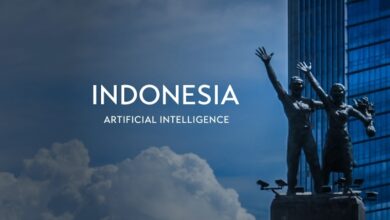Knowledge ‘24 – Enterprises will coalesce around two or three generative AI platforms, says ServiceNow CCO

Customers and prospective buyers are gathering in Las Vegas this week for ServiceNow’s annual Knowledge event, where many will be seeking out guidance on how to progress generative AI projects in their organizations. This time last year ServiceNow was making its early announcements regarding a partnership with NVIDIA and how it saw generative AI impacting enterprise workflows – but 12 months have passed and attendees will now be looking for more practical guidance about the impact of the rapidly advancing technology on their systems and work.
Just a few weeks ago ServiceNow CEO Bill McDermott told financial analysts during the vendor’s quarterly earnings call that process optimization is the “single biggest generative AI use case in the world”, where he believes that the company’s Now Assist tool will play a critical role. However, as diginomica has noted time and time again in recent months, buyers are facing some ridiculously difficult decisions at the moment, in the context of tough macroeconomic conditions and in a market that’s progressing at a rapid rate.
CEOs and board members are being told the generative AI is the future and that companies need to invest, whilst lines of business and technology leaders are being presented with an array of options by their chosen technology partners. With every vendor in the market announcing their own version of what generative AI looks like, and with buyers also having to decide whether it’s worth investing in their own models, it’s a confusing time – where it’s becoming increasingly difficult to separate fact from fiction.
And so, this week, ServiceNow’s primary objective is to present buyers with a compelling choice about why it is one of the platform choices that is worth pursuing, when it comes to generative AI. No announcements have been made yet, but on the eve of the event diginomica got the chance to speak with ServiceNow’s Chief Commercial Officer, Paul Smith, to get a better understanding of the choices facing buyers at this moment in time and what they should be thinking about as they make them.
Smith agrees that enterprises are grappling with difficult decisions at this moment in time, saying that they are being asked to make choices that deliver value quickly. Up until now, he adds, enterprises have fallen into two camps: they’ve either been investing in popular offerings like Microsoft’s Copilot for productivity, or they’ve been taking a scattergun approach with multiple LLMs across multiple pilots.
However, looking ahead, Smith argues that buyers will likely frame their decision making in a similar way to how cloud purchasing decisions have played out over the longer time – in that a few core platforms will win. He says:
My personal point of view is it takes just as much corporate effort and energy to run those smaller pilots as it does to go and make a bold platform choice. And I personally believe that the organizations that are making those bets early, will get more gains…real gains.
The pendulum is definitely swinging more in favour of those platform choices. They’ve done the pilots, done some experimentation, they know this stuff works, they know they can derive value from it – but now they need to make some hard choices in terms of who their platform partners are going to be.
The few that will make the most difference
Smith argues that enterprises have had the past year or so to experiment, but that now it is time for prioritization. And, perhaps unsurprisingly, ServiceNow believes that buyers will look to existing platforms to surface most of the value that they need. Smith says:
Every single week there’s a new LLM…only by choosing what you truly want to prioritize are you going to make very very swift progress in this. It’s not that dissimilar to the world when you had a million different collaboration tools out there – but you choose your particular flavour.
Smith acknowledges that there’s currently a fight in the enterprise software industry to be the ‘compiler’, the platform that mediates and manages all the other generative AI offerings. However, businesses are going to have to choose – and Smith believes that this choice will come down to the platforms that are going to make the most difference to employees and organizations, delivering the most value as quickly as possible. He adds:
I do see the world coalescing around two or three [platforms] and I’m confident that we’re going to be one of those two or three
It could be argued that ServiceNow is well positioned to take advantage of this decision making time amongst buyers, given that its core proposition for the past few years has been that it is the ‘platform of platforms’. McDermott has consistently said that the purchase of the Now platform is not a zero sum game in the cloud industry, given that ServiceNow integrates into systems of record and acts as a unifier across the enterprise to get work done. I expect this proposition will become more critical to the vendor over the coming months and years, as it argues that it can surface enterprise data for generative AI use across all silos. As Smith notes:
ServiceNow comes along and provides one pane of glass across all, [allowing you to] get work done, as it moves across those different silos. That now goes into the world of generative AI where human language is the primary interface into the business, whether that’s written or spoken – it just amplifies that even more. I can now go into a single pane of glass, or even a single virtual agent, to accomplish all of that work.
All of that automation you’ve already invested in, all of the digitization and the value you’re getting from ServiceNow, you’re actually just surfacing that, making it even more useful, because now you’re able to call upon it and do it from simple conversational tasks.
My take
It was good to catch up with Smith, who is now leading a large team in the US, framing his go to market strategy around generative AI. I believe his sentiments will likely also frame the coming week at Knowledge ‘24. I expect ServiceNow to argue that its role over the past few years has been to automate the flow of work across the enterprise, by integrating into systems of record, and that it makes sense for buyers to choose its platform as the ‘service-based’ generative AI tool for business, given that already acts as a ‘unifier’.
If Microsoft or Google are going to ‘own’ generative AI for productivity and collaboration, ServiceNow wants to be the vendor that owns generative AI for work fulfilment and service execution. It’s becoming clear to me that these are how the bubbles will form around generative AI in the industry – which vendor has the best data for the jobs humans currently do in the enterprise? If you use Microsoft or Google for collaboration, they probably have the best data for that. As we saw last week with Qualtrics, it probably has the best data for experience management. Marketing, you’re probably going to look to Adobe or similar. Equally, for service-based work, you’re probably going to look to a vendor like ServiceNow.
There’s likely lots of change to come, as we saw with the advancements in cloud computing – new vendors and companies emerged as buyers sought out new operating and business models. However, what we should be looking at is: who holds data around specific knowledge tasks? Because it looks like generative AI will now be able to play a big role there and those vendors will be pushing aggressively on that front. And what impact will this have on those roles in the enterprise as a result?
Plenty more to come over the coming week, so stay tuned to diginomica for all the announcements and analysis from Knowledge, on the ground in Vegas.



